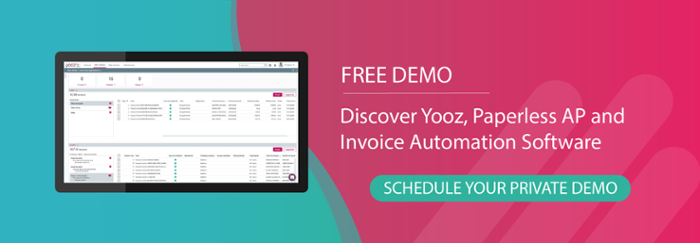Sales, leasing, rentals, financing… These are all common transactions in the transportation industry and hard enough to coordinate in just one location. Magnify this by anywhere from one to dozens of automotive dealerships, add on frequent inter-location product transport, and you quickly have a mountain of paperwork. For any numbers-based organization, paperwork leads to errors.
This is a perfect example of how automated financial systems technology can benefit companies of all sizes, helping them to streamline their processes to save both time and money. This in turn promotes business growth both internal and external, all the way from customer to service to management.
Let us consider two automated financial systems in particular: Accounts Payable automation and ERP for dealerships.
AP Automation for the Win
The Accounts Payable (AP) process is a key part of the finance department, at the very minimum handling invoice and billing all the way to handling payments. AP Automation is an automated financial system that focuses specifically on this invoice process. It eliminates the manual, time-consuming, and error prone processes and replacing them with streamlined, reliable technology that integrates with a business’ existing ERP. The new benefits are immediate with long-reaching effect.
Consider AP Automation to be like other accounting processes, out with things like:
- Lost documents
- Duplicate or inaccurate invoices
- Extended approval processes
- Missed payments
- Storage costs
And in with:
- Time savings
- Reduced costs
- Improved accuracy
- Enhanced insight and increased transparency of data
- Easy tracking and auditing
This is backed by multiple data sources including Levvel, who found in their 2021 Payables Insight Report that companies that have embraced automation have saved on average 80% of their processing costs and cut cycle times by 10-20%.
ERP and The Dealership
Enterprise Resource Planning (ERP) is an industry term that refers to a business process management software – typically a suite of applications – that integrates all major business functions and runs them under a single system.
Some types of ERP are industry specific, tailored to address core needs or conditions particular to the requirements of that commercial activity. In the case of dealerships this ERP is known as a Dealer Management System (DMS for short). Similar to a “normal” ERP, the DMS pulls together information from finance to human resources, product planning to customer service. However, the DMS also expands on dealership needs including fixed ops, sales, customer relationship management, vehicle information, and more.
The Best of Both Worlds: Combining ERP and AP Automation
Most companies with a solid ERP system still have manual, paper-based activities that exist within the AP workflow process and can have a negative effect on the consumer. When integrated, the AP automation functionality can replace these time-consuming manual activities to further streamline business processes and offer extra features and enhancements to meet any unique needs of an organization.
The benefits gained from this system integration are the motivation behind the Yooz and PBS Systems partnership.
Yooz provides the smartest, most powerful, and easiest-to-use cloud-based AP invoice and payment automation solution. The platform is technologically advanced yet offers extreme simplicity, traceability, and end-to-end customization.
PBS Systems is a leading DMS company provider of accurate, reliable dealership management software, services, and support to dealership customers. Over the past 30 years it has become the largest Canadian dealership vendor as well as one of the top three in North America.
Thanks to the partnership between the two companies, the seamless integration between the Yooz automation platform and the PBS DMS system provides customers with the most efficient and automated AP process available. Customers will be able to:
- Improve inventory management
- Save time and money
- Reduce errors
- Maintain records
- Improve morale
Management will acquire a real-time overview of operations at both the dealer and corporate level which in turn will generate more encompassing strategic decision making. No matter the angle, this partnership is a win situation for both the dealerships and the customers.





